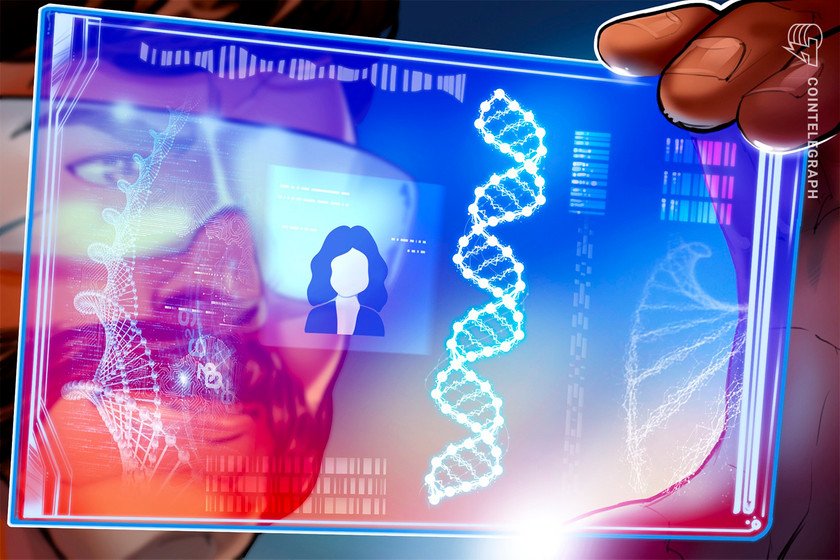As the Stunning Records Society puts it, we are laborers in the details financial system. Our private knowledge — in most cases, the digital blueprint of our lives — will get aloof by platforms we work along with, most in most cases in a non-transparent map. At finest, it’s miles fashioned to pork up our user abilities. At worst, our privacy will get breached, monetized and even weaponized against us.

It started with the emergence and shriek of the user-generated web, as seemingly free social media networks, search engines and firms saw a unique opportunity of profiting and went into the enterprise of gathering, storing, inspecting and selling user knowledge. By 2022, the details market had grown immensely. In accordance to Statista, a total of 64.2 zettabytes of data had been created, consumed and attach online worldwide by 2020. By 2025, this quantity is expected to exceed 180 zettabytes.

Speaking about the evolution of data sovereignty in a profit-driven climate, professor Sabina Leonelli acknowledged:
“Particular person agency in the details financial system has gotten smaller, with about a organizations dominating the necessities below which data can even moreover be exchanged and fashioned, to the detriment of particular person rights and collective action.”
Certainly, over three-quarters of the worldwide search market is below the defend watch over of the Google search engine and over 3.6 billion particular person users all over four social media platforms owned by Meta.

Route for knowledge sovereignty
Immense Tech firms acknowledged the tension and extending regulatory demand, so in 2018, the Records Transfer Conducting used to be born. Six contributors — Google, Microsoft, Apple, Twitter, Facebook and SmugMug — dedicated to enabling seamless knowledge switch among platforms by technique of a current framework with launch-supply code. Quiet, it used to be factual the 1st step against users reclaiming their knowledge.
In the past few years, the demand for transparency, trustlessness, security and decentralization has fashioned all over more than one sectors of our existence: from finance to organizational management to knowledge storage. That is evident in the blockchain technologies and choices such as decentralized finance, decentralized self reliant organizations and Web3, which goal to grant users beefy defend watch over over their digital lives and defend the fundamental human correct to knowledge privacy.
Linked: DAOs are the muse of Web3, the creator financial system and the future of work
So, what are knowledge sovereignty and radical knowledge possession — and how can they be finished?
In a nutshell, achieving knowledge sovereignty map the user takes beefy defend watch over over their knowledge. They in the destroy bag to know (and have a allege on) the build it goes and what capabilities it would possibly perhaps probably even moreover be fashioned for, while the details itself is now no longer locked correct into a single platform. The advocates of this belief are aiming to assemble a unique, comely digital house the build data shall be fashioned for social objective, and its fee shall be disbursed in alignment with Web3 and Stunning Records Principles, and there are a replacement of decentralized devices that would possibly again originate that.
Web3: My keys, my knowledge
One among the first aspects of Web3 that makes it diverse from the procure all of us know is the shortcoming of centralized knowledge repositories. Decentralized storages provide us with a single supply of truth — the identical as blockchain does, factual for private and big knowledge.
The employ of protocols and a decentralized knowledge layer will ranking it likely to encrypt and alternate data in a system of glimpse-to-glimpse networks, while narrate-basically based addressing makes certain that all of us know the details hasn’t been tampered with: After we earn a chunk from a certain address, all of us know that this knowledge is correct on legend of its hash corresponds to the address.
Moreover, there’s no knowledge sovereignty without knowledge interoperability. As against knowledge monopolies, the build users are locked into proprietary interfaces, Web3 is in line with the conception that of the employ of noncustodial choices. By the employ of keys, users shall be ready to bag admission to the identical enlighten of their private knowledge from more than one platforms (moreover acknowledged as BYOD) and circulate it freely among storages and apps.
The ticket-up path of will observe adjustments, too. For one, we employ e mail addresses to assemble accounts, or tie them to our Google adn Facebook profiles. In Web3, e mail credentials shall be changed with pockets addresses. “Be a part of with Ethereum,” which is funded by the Ethereum Foundation and must peaceable potentially radically change a venerable, is a objective instance here. Whereas all interactions with the blockchain are readily available for public viewing, logging in with an nameless pockets address will again defend confidentiality.
In the meantime, builders and narrate creators will bag bag admission to to unique systems of monetizing their narrate. Tokens, every fungible and nonfungible, are the “likes” and “retweets” of Web3. These can even moreover be fashioned to reward quality narrate and share pieces of data, all while making certain the creator will get a objective correct share of the royalties.
Linked: The metaverse: Impress Zuckerberg’s Courageous Quiet World
And in the destroy, as a ways as defend watch over over knowledge is involved, introducing decentralized governance is yet one opposite direction to descend the monopolistic energy of Immense Tech. Decentralized self reliant organizations have the capability to raise democracy and transparency to the resolution-making path of on the blockchain, as transactions are verified thru consensus.
Bringing belief and privacy into the details financial system
Reaching digital sovereignty map treating users as persons, now no longer cogs in the details financial system machine. To summarize the above, it would possibly perhaps probably even moreover be finished by building human-centric applications the build knowledge interoperability and data sovereignty are attach first, incentivizing the development of the unique web infrastructure that supports encryption, knowledge safety and ethical, transparent enterprise fashions. In the end, general digital literacy would moreover lower the potentialities of web users unwittingly signing away their privacy.
Linked: The records financial system is a dystopian nightmare
As a closing level to, it’s miles also crucial to emphasize that here’s a collaborative effort — one larger than a single particular person or group — and the overall Web3 house must peaceable work together. This kind, we are able to open reclaiming privacy for the particular person and bringing belief into the details financial system on a societal stage.
This text does now no longer contain investment advice or suggestions. Every investment and trading circulate involves risk, and readers must peaceable conduct their very possess research when making a resolution.
The views, suggestions and opinions expressed listed below are the author’s by myself and originate now no longer essentially judge or signify the views and opinions of Cointelegraph.
Gregor Žavcer has wide abilities in neighborhood building, impress identity, advertising and marketing, enterprise trend, blockchain abilities, and decentralized financial system. He became occupied with the Ethereum neighborhood early on, which led him to assemble his possess decentralized knowledge management startup. This day, Gregor is the operation lead at Swarm, a decentralized storage and verbal change system for a sovereign digital society.


